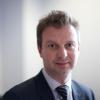Mr Jeremy Ockrim is a Consultant Urological Surgeon in Female and Reconstructive Surgery on Harley Street and treats at University College Hospital London and the Hospital of St John and St Elizabeth, London. He is also an Honorary Senior Lecturer at University College London and the clinical lead for sacral nerve neuromodulation at University College Hospital. He was one of the first British providers of sacral nerve stimulation to manage urgency, incontinence and pain.
Mr Ockrim qualified with a Bachelor of Science at the University of Glasgow before receiving a Doctor of Medicine (MD) degree from Imperial College London in 1999. His MD thesis was written on the use of oestrogen in the treatment of prostate cancer. Following qualification he undertook a clinical fellowship at the Royal Melbourne Hospital, Australia. He has received membership of the British Association of Urological Surgeons (BAUS), the British Medical Association, the European Association of Urology, the Royal College of Surgeons of Edinburgh, the Royal Society of Medicine, and he is assistant editor of the Central European Journal of Urology. He is also a Fellow of the Royal College of Surgeons (Urology).
His training in Female and Reconstructive Urology was completed at the Institute of Urology, University College Hospital London. This centre offers expertise in Female and Male Reconstructive Urology to Urologists and Urogynaecologists across the UK.
Mr Ockrim specialises in the treatment of bladder and prostate dysfunction, the management of prostate enlargement, male slings, female and male incontinence (including colposuspension and Tension Free Vaginal Tape {TVT}/Trans Obturator Tape {TOT}), urinary fistulae and diverticula surgery, artificial urinary sphincter implantation, bladder replacement and urinary diversion. prolapse. He specialises in the management of prostate enlargement, treatment of male and female incontinence including colposuspension, TVT/TOT, male sling, artificial urinary sphincter implantation, urinary fistulae and diverticula surgery, prolapse repair, bladder augmentation, bladder replacement and both continent and incontinent urinary diversion.
He has particular interest in managing overactive bladder and pain syndromes. The treatments include medical therapy, acupuncture, Botox and neuromodulation.
Personal treatment philosophy: Medicine often offers multiple solutions to problems. These solutions should be tailored to the patient’s specific circumstances and needs. All the alternatives should be discussed and a holistic approach agreed with patients applied.

